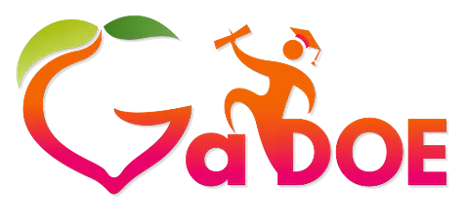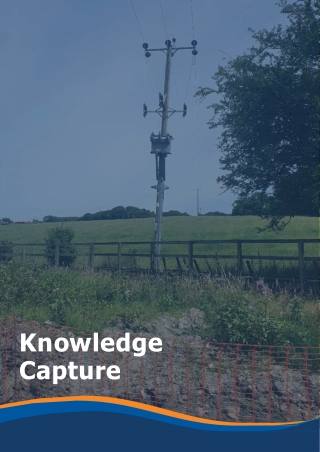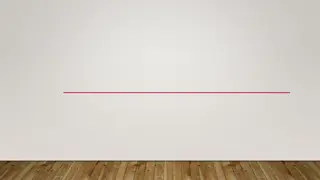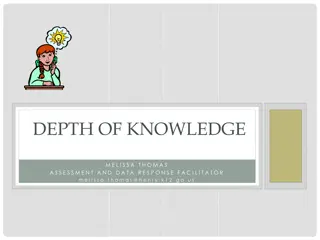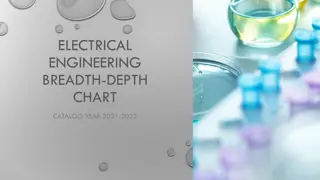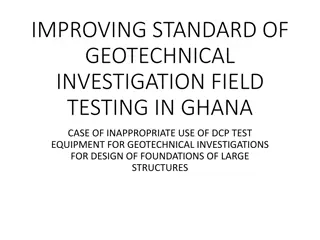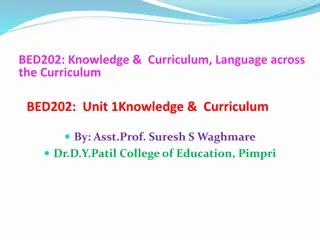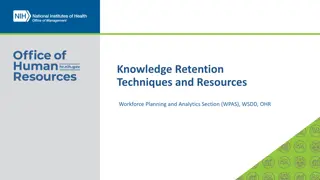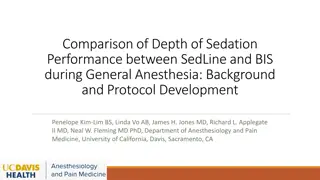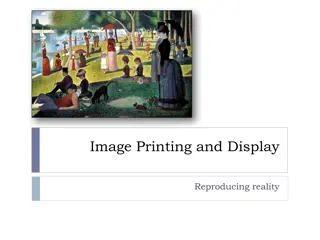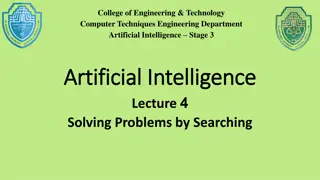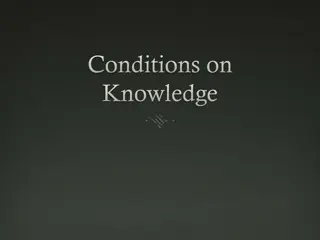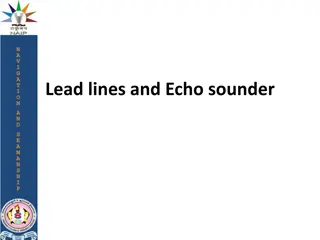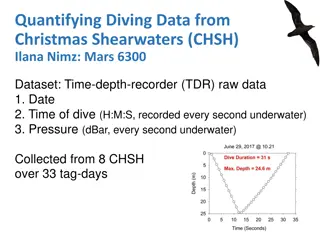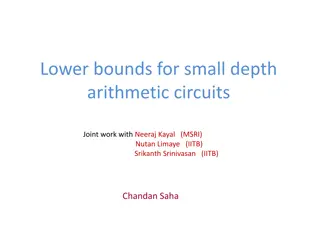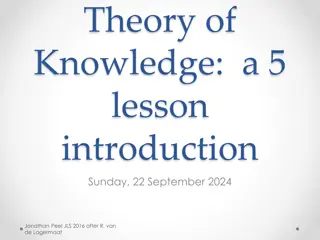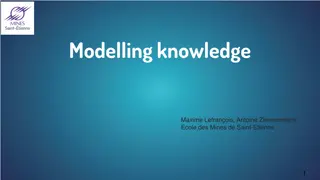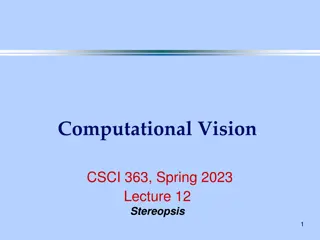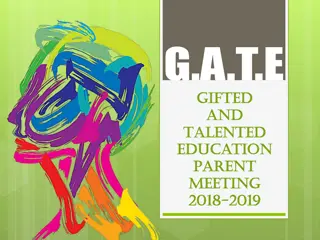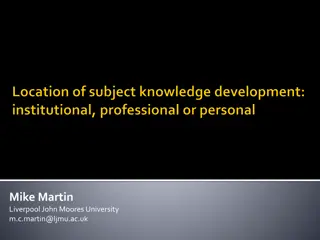Depth of Knowledge in Education
Exploring Depth of Knowledge (DOK) as a key concept in education, this content delves into how DOK can enhance student engagement and critical thinking skills. Richard Woods, Georgia's School Superintendent, provides insights on applying DOK across different grade levels and content areas, emphasizing the importance of moving students from unengaged to engaged learners. The practical examples and frameworks shared aim to help educators deepen students' understanding and application of knowledge.
Download Presentation

Please find below an Image/Link to download the presentation.
The content on the website is provided AS IS for your information and personal use only. It may not be sold, licensed, or shared on other websites without obtaining consent from the author.If you encounter any issues during the download, it is possible that the publisher has removed the file from their server.
You are allowed to download the files provided on this website for personal or commercial use, subject to the condition that they are used lawfully. All files are the property of their respective owners.
The content on the website is provided AS IS for your information and personal use only. It may not be sold, licensed, or shared on other websites without obtaining consent from the author.
E N D
Presentation Transcript
Richard Woods, Georgias School Superintendent Educating Georgia s Future gadoe.org Richard Woods, Depth of Knowledge Online Professional Development Part 1 Georgia s School Superintendent Educating Georgia s Future gadoe.org Education of Migratory Children Resource Specialist Team Cindell Mathis Sabrina Rivera Pineda April Roberts Miriam Blaisdell-Ndaayezwi Mary Clare Tarpley April 10, 2018 1
Georgia's Systems of Continuous Improvement to Improve Migrant Student s Academic Achievement Richard Woods, Richard Woods, Georgia s School Superintendent Georgia s School Superintendent Educating Georgia s Future Educating Georgia s Future gadoe.org gadoe.org Depth Of Knowledge
Overview Richard Woods, Richard Woods, Georgia s School Superintendent Georgia s School Superintendent Educating Georgia s Future Educating Georgia s Future Part 1: gadoe.org gadoe.org What is DOK? How can I apply DOK Question Stems to my work? Part 2: Connecting DOK concepts to my work: Introduction to Close Reading Part 3: In-person training
Depth Of Knowledge Richard Woods, Richard Woods, Georgia s School Superintendent Georgia s School Superintendent Educating Georgia s Future Educating Georgia s Future gadoe.org gadoe.org What is it? Depth of Knowledge (DOK) is a way to help students think more deeply about what they are learning. It is not simply increasing the difficulty of the content, but rather changing how students engage with it. It is moving from unengaged learner to engaged learner. How can it be used? Across the content areas Across grade levels Preschool OSY
Framework for Critical Thinking Richard Woods, Richard Woods, Georgia s School Superintendent Georgia s School Superintendent Educating Georgia s Future Educating Georgia s Future gadoe.org gadoe.org Fully engaged Unengaged Source: The Paul-Elder Framework for Critical Thinking, Foundation for Critical Thinking
Cooking with DOK: A Practical Example Richard Woods, Richard Woods, Georgia s School Superintendent Georgia s School Superintendent Educating Georgia s Future Educating Georgia s Future gadoe.org gadoe.org Level 1 What am I making? What are my ingredients? Level 2 How do these ingredients go together to make what I am cooking? Level 3 Why do heat and cooking time matter? Level 4 How could my knowledge of cooking be applied to making other, more elaborate dishes?
Framework for Critical Thinking Richard Woods, Richard Woods, Georgia s School Superintendent Georgia s School Superintendent Educating Georgia s Future Educating Georgia s Future gadoe.org gadoe.org Master Chef Beginner Source: The Paul-Elder Framework for Critical Thinking, Foundation for Critical Thinking
Out of School Youth Profile Richard Woods, Richard Woods, Georgia s School Superintendent Georgia s School Superintendent Educating Georgia s Future Educating Georgia s Future gadoe.org gadoe.org
Level 1: What is the Knowledge? Richard Woods, Richard Woods, Georgia s School Superintendent Georgia s School Superintendent Educating Georgia s Future Educating Georgia s Future gadoe.org gadoe.org Recalling or Stating Basic Information Cooking example: Recall the ingredients
Level 1 Question Stems: Richard Woods, Richard Woods, Georgia s School Superintendent Georgia s School Superintendent Educating Georgia s Future Educating Georgia s Future gadoe.org gadoe.org Can you recall______? When did ____ happen? Who was ____? How can you recognize____? What is____? How can you find the meaning of____? Can you recall____? Can you select____? How would you write___? What might you include on a list about___? Who discovered___? What is the formula for___? Can you identify___? How would you describe___? Select a question stem from this list and type a completed question into the chat box that you would use during tutoring: Example: What is volcanic ash?
Level 2: How can the knowledge be used? Richard Woods, Richard Woods, Georgia s School Superintendent Georgia s School Superintendent Educating Georgia s Future Educating Georgia s Future gadoe.org gadoe.org Cooking example: In which order do I need to combine the ingredients? (Dry with dry and wet with wet)
Level 2 Question Stems Richard Woods, Richard Woods, Georgia s School Superintendent Georgia s School Superintendent Educating Georgia s Future Educating Georgia s Future gadoe.org gadoe.org Can you explain how ____ affected ____? How would you apply what you learned to develop ____? How would you compare ____? Contrast_____? How would you classify____? How are _______ alike? Different? How would you classify the type of____? What can you say about____? How would you summarize____? What steps are needed to edit___? When would you use an outline to ___? How would you estimate___? How could you organize___? What would you use to classify___? What do you notice about___? Select a question stem from this list and type a completed question into the chat box that you would use during tutoring: Example: How are volcanic ash and lava alike? How are they different?
Level 3: How can the knowledge be applied? Richard Woods, Richard Woods, Georgia s School Superintendent Georgia s School Superintendent Educating Georgia s Future Educating Georgia s Future gadoe.org gadoe.org Cooking example: How would you adapt this recipe if you were needing to feed more people?
Level 3 Question Stems Richard Woods, Richard Woods, Georgia s School Superintendent Georgia s School Superintendent Educating Georgia s Future Educating Georgia s Future gadoe.org gadoe.org How is ____ related to ____? What conclusions can you draw _____? How would you adapt ____ to create a different____? How would you test____? Can you predict the outcome if____? What is the best answer? Why? What conclusion can be drawn from these three texts? What is your interpretation of this text? Support your rationale. How would you describe the sequence of____? What facts would you select to support____? Can you elaborate on the reason____? What would happen if___? Can you formulate a theory for___? Select a question stem from this list and type a completed question into the chat box that you would use during tutoring: Example: What would happen if a volcano erupted near an urban area?
Level 4: How else can the knowledge be used? Richard Woods, Richard Woods, Georgia s School Superintendent Georgia s School Superintendent Educating Georgia s Future Educating Georgia s Future gadoe.org gadoe.org Cooking example: Based on your experience with cooking this recipe and with people you know who have allergies, how would your cooking differ to accommodate a wider range of people?
Level 4 Question Stems Richard Woods, Richard Woods, Georgia s School Superintendent Georgia s School Superintendent Educating Georgia s Future Educating Georgia s Future gadoe.org gadoe.org Write a thesis, drawing conclusions from multiple sources. Design and conduct an experiment. Gather information to develop alternative explanations for the results of an experiment. Write a research paper on a topic. Apply information from one text to another text to develop a persuasive argument. What information can you gather to support your idea about___? DOK 4 would most likely be the writing of a research paper or applying information from one text to another text to develop a persuasive argument. DOK 4 requires time for extended thinking. Select a question stem from this list and type a completed question into the chat box that you would use during tutoring: Example: Design and write an evacuation plan for a family that addresses the following criteria: evacuation procedures, safety, supplies and equipment, pet and human first aid, and returning home after the natural disaster.
Use your DOK skills! Richard Woods, Richard Woods, Georgia s School Superintendent Georgia s School Superintendent Educating Georgia s Future Educating Georgia s Future gadoe.org gadoe.org Before our in-person training, use the DOK question stems at various levels and be prepared to talk about your experience in the training.
Part 2: Depth of Knowledge Richard Woods, Richard Woods, Georgia s School Superintendent Georgia s School Superintendent Educating Georgia s Future Educating Georgia s Future gadoe.org gadoe.org Online Professional Development April 17, 2018 2:00pm 18
Thank you for attending! Richard Woods, Richard Woods, Georgia s School Superintendent Georgia s School Superintendent Educating Georgia s Future Educating Georgia s Future gadoe.org gadoe.org Region 1 Resource Specialists 201 West Lee St. Brooklet, GA 30415 Office: 912-842-5400 Region 2 Resource Specialists 221 N. Robinson Street Lenox, GA 31637 Office: 229-546-3248 Cindell Mathis: cmathis@doe.k12.ga.us Mary Clare Tarpley: mctarpley@doe.k12.ga.us Sabrina Pineda: spineda@doe.k12.ga.us Miriam Ndaayezwi: mndaayezwi@doe.k12.ga.us April Roberts: aroberts@doe.k12.ga.us




